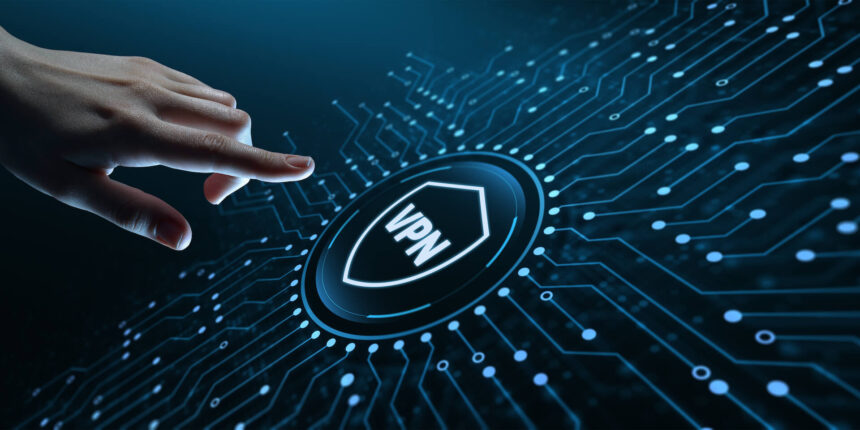In today’s online world, having a VPN is essential for protecting your privacy and security. With so many options available, it can be hard to know which VPN is right for you. This guide will help you understand the importance of VPNs, what features to look for, and how to find the best one that meets your needs. Whether you’re streaming shows, gaming, or just want to keep your data safe, we’ve got you covered!
Understanding the Importance of a VPN
Why You Need a VPN
Using a VPN is a smart way to keep your online activities private. It helps protect your data from hackers and keeps your internet service provider (ISP) from seeing what you do online. Here are some reasons why you might want to use a VPN:
- Protects your personal information on public Wi-Fi.
- Allows you to access channels that may be blocked in your country.
- Hides your IP address, making it harder for others to track you.
Common Misconceptions About VPNs
Many people think that VPNs are only for tech experts or that they are too complicated to use. However, this is not true! Here are some common myths:
- VPNs are only for illegal activities.
- All VPNs are the same.
- Using a VPN is too slow for streaming.
How VPNs Enhance Online Privacy
VPNs work by creating a secure connection between your device and the internet. This means that your data is encrypted, making it hard for anyone to see what you are doing online. Here are some key benefits:
- Hides your location: By connecting to a server in another country, you can appear to be browsing from there.
- Protects your data: Encryption keeps your information safe from hackers.
- Prevents tracking: Your ISP and advertisers can’t easily track your online activities.
Using a VPN is like driving through a private tunnel where no one can see where you are going. It keeps your online life safe and private.
Key Features to Look for in the Best VPN
Encryption Standards
When choosing a VPN, strong encryption is crucial. Here’s the best free VPN for iPhone that offers AES 256-bit encryption, ensuring your data stays secure, just like the protection used by banks and the military.
No-Logs Policy
A good VPN should have a strict no-logs policy. This means they don’t keep records of your online activities. Always check if the VPN has been independently audited to confirm their claims.
Server Locations and Speed
Having a wide range of server locations is important. Here’s a quick comparison of some popular VPNs:
| VPN Provider | Number of Servers | Max Speed |
| NordVPN | 5,400+ | 10 Gbps |
| ExpressVPN | 3,000+ | 10 Gbps |
| CyberGhost | 7,000+ | 10 Gbps |
| Surfshark | 3,200+ | 10 Gbps |
Device Compatibility
Make sure the VPN works on all your devices. Here are some key points to consider:
- PCs and Laptops: Should support Windows, Mac, and Linux.
- Smartphones: Look for apps for Android and iOS.
- Smart TVs and Routers: Check if the VPN can be set up on these devices.
Additional Features
Some VPNs offer extra features that can enhance your experience:
- Kill Switch: This feature cuts your internet if the VPN connection drops, keeping your data safe.
- Split Tunneling: Allows you to choose which apps use the VPN and which don’t.
- Multi-Hop: Routes your connection through multiple servers for added security.
Choosing the right VPN can greatly improve your online safety and access to content. Always consider your specific needs and do thorough research before making a decision.
Assessing Your Specific VPN Needs
When choosing a VPN, it’s important to think about what you really need. Understanding your specific requirements can help you find the best VPN for your situation. Here are some key areas to consider:
VPNs for Streaming
- Look for high speeds to avoid buffering.
- Check if the VPN works with popular streaming services like Netflix and Hulu.
- Ensure it has apps for your devices, such as smart TVs or tablets.
VPNs for Torrenting
- Choose a VPN that allows P2P file sharing.
- Make sure it has a no-logs policy to keep your activities private.
- Unlimited bandwidth is essential for smooth downloads.
VPNs for Gaming
- Low latency is crucial for a good gaming experience.
- Check for servers close to your location to reduce lag.
- Look for a VPN that doesn’t slow down your connection significantly.
VPNs for Privacy and Security
- Select a VPN that uses strong encryption methods.
- A strict no-logs policy is vital to protect your data.
- Ensure it has features like a kill switch to keep your information safe.
Remember, the right VPN can enhance your online experience, whether you’re streaming, gaming, or just browsing the web. Take the time to assess your needs before making a choice.
Top VPN Providers in 2024
In 2024, several VPN providers stand out for their features and performance. Among the top options, you’ll find some of the most inexpensive VPN services that offer excellent value without compromising on security or speed.
NordVPN
- Best for Privacy
- Security Score: 9.7/10
- Strict no-logs policy
- Over 5,200 servers in 60+ countries
- Connect up to 6 devices at once
Surfshark
- Best for Security
- Security Score: 9.5/10
- No-logs policy
- Unlimited device connections
- Offers features like double VPN and split tunneling
Private Internet Access VPN
- Best for Windows
- Security Score: 9.4/10
- Thousands of servers in 78 countries
- Excellent mobile apps
- Strict no-logs policy
ExpressVPN
- Best Overall
- Security Score: 8.8/10
- Strong commitment to privacy
- User-friendly app across platforms
- Excellent for streaming
CyberGhost
- Best for Streaming
- Security Score: 8.9/10
- User-friendly interface
- Over 7,000 servers in 90 countries
Comparison Table
| VPN Provider | Security Score | Best For | Number of Servers | Device Connections |
| NordVPN | 9.7/10 | Privacy | 5,200+ | 6 |
| Surfshark | 9.5/10 | Security | Unlimited | Unlimited |
| Private Internet Access | 9.4/10 | Windows | Thousands | 10 |
| ExpressVPN | 8.8/10 | Overall | 3,000+ | 5 |
| CyberGhost | 8.9/10 | Streaming | 7,000+ | 7 |
Choosing the right VPN is crucial for your online safety. Each of these providers has unique strengths, so consider your specific needs when making a choice.
How to Test and Compare VPNs
When choosing a VPN, it’s important to know how to evaluate them effectively. Here are some key areas to focus on:
Speed Tests
- Conduct speed tests on different servers to see how much the VPN slows down your internet.
- Use tools like Speedtest.net to measure download and upload speeds.
- Test at different times of the day to get a full picture of performance.
Security Tests
- Check if the VPN uses strong encryption methods, like AES-256.
- Look for a no-logs policy to ensure your data isn’t stored.
- Test for IP and DNS leaks using sites like DNSLeakTest.com.
Usability and Interface
- Evaluate how easy the VPN app is to use. A good interface should be simple and intuitive.
- Check if the VPN supports multiple devices and platforms.
- Read user reviews to see if others find it user-friendly.
Customer Support
- Good customer support is essential. Look for 24/7 live chat or email support.
- Test the response time by asking a question and noting how quickly they reply.
- Check if they have a knowledge base with helpful guides and FAQs.
| Feature | Importance Level |
| Speed | High |
| Security | High |
| Usability | Medium |
| Customer Support | High |
Testing a VPN in real-life situations is the best way to know if it meets your needs. Try it at home, work, and school to see how it performs.
Setting Up and Using Your VPN
Downloading and Installing the VPN
Getting started with a VPN is simple. Here’s how to do it:
- Choose a VPN provider that fits your needs.
- Go to their website and download the app for your device.
- Follow the installation instructions to set it up.
Configuring Settings
Once installed, you may want to adjust some settings:
- Enable the kill switch to protect your data if the VPN disconnects.
- Choose your preferred encryption level for better security.
- Set up auto-connect to ensure you’re always protected.
Connecting to a Server
To connect to a VPN server:
- Open the VPN app.
- Select a server location from the list.
- Click on the connect button.
Troubleshooting Common Issues
If you run into problems, try these steps:
- Restart the app or your device.
- Check your internet connection.
- Switch to a different server if the current one is slow.
Remember, testing your VPN in different places like home, work, and school can help you find the best setup for your needs. Some VPNs offer free trials, so take advantage of that to see if it works for you!
Advanced VPN Features and Tips
Split Tunneling
Split tunneling is a handy feature that allows you to choose which apps or websites use the VPN and which ones use your regular internet connection. This can help improve your internet speed for activities that don’t need a VPN. For example:
- Streaming services can use the VPN for privacy.
- Local banking apps can connect directly to your regular internet for faster access.
- Gaming can benefit from lower latency by using a direct connection.
Kill Switch
A kill switch is an important safety feature. It automatically disconnects your internet if the VPN connection drops. This ensures that your real IP address and online activities stay hidden. Always check if your VPN has this feature!
Multi-Hop VPN
Multi-hop VPNs route your internet traffic through two servers instead of one. This adds an extra layer of security, making it harder for anyone to track your online activities. It’s especially useful for:
- Sensitive transactions like online banking.
- Accessing restricted content in high-surveillance areas.
- Enhanced privacy for general browsing.
Obfuscation
Obfuscation hides the fact that you are using a VPN. This is useful in countries where VPNs are blocked or restricted. It helps you access content without being detected.
Remember: Not all VPNs offer these advanced features, so check carefully before choosing one.
Final Thoughts on Choosing the Right VPN
In conclusion, finding the right VPN can seem tough, but it doesn’t have to be. Start by figuring out what you really need, whether it’s for streaming, gaming, or just keeping your data safe. Look for features that matter to you, like speed and security. Remember, not all VPNs are the same, so take your time to compare your options. With the right VPN, you can enjoy a safer and more private online experience. So, take the leap and choose a VPN that fits your needs best!
Frequently Asked Questions
What is a VPN and why do I need one?
A VPN, or Virtual Private Network, helps keep your online activities private. It creates a secure connection to the internet, making it harder for others to see what you’re doing.
Can a VPN protect me from hackers?
Yes, a VPN adds a layer of security that makes it tougher for hackers to steal your data when you’re online.
Do VPNs slow down my internet?
Sometimes, using a VPN can slow down your internet speed. This can happen because your data is being routed through a different server.
Are all VPNs the same?
No, not all VPNs are equal. Some offer better security, faster speeds, or more server locations than others.
Will a VPN let me access blocked websites?
Yes, a VPN can help you access websites that may be blocked in your country by masking your IP address.
Is it legal to use a VPN?
Yes, using a VPN is legal in most countries, but it’s important to check the laws in your specific location.


